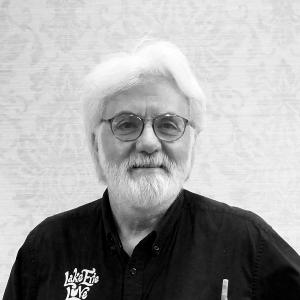Peter Huston

Collecting Stories at the National Working Waterfronts and Waterways Symposium 2018
Collecting Stories at the National Working Waterfronts and Waterways Symposium 2018 is a project of Maine Sea Grant, College of the Atlantic, the Island Institute, and the National Working Waterfront Network.
National Capital Contracting
Peter Huston is a filmmaker and active member of the Chamber of Commerce on South Bass Island, Ohio. His professional and personal endeavors have positioned him as a knowledgeable figure in the community, particularly in matters concerning the local waterfront. Huston's engagement with the island's development and his creative background give him a unique perspective on the historical and contemporary issues facing his community. His work in the film industry has likely honed his storytelling abilities, enabling him to articulate the narrative of the island's evolution effectively. As a resident and advocate for South Bass Island, Huston's insights are informed by his direct experiences with the economic, environmental, and social dynamics that shape the life of the islanders. His involvement with the Chamber of Commerce suggests a commitment to fostering economic growth and addressing the challenges that impact local businesses and the community at large.
Scope and Content Note
In this oral history interview, Peter Huston delves into the multifaceted history and present-day challenges of the working waterfront on South Bass Island, Ohio. He discusses the history of waterfront use in Put-in-Bay, OH, from industry to winemaking and currently to transportation. He addresses challenges around the high water level negatively impacting the transportation economy and the difficulty of keeping access points open. Huston’s vision is for the sustainable growth of the waterfront. He begins by exploring the significant influence of the wine industry on the waterfront's development, tracing its roots and impact on the local economy and culture. Huston then shifts to address the contemporary issues plaguing the community, such as the high water levels that disrupt transportation and the critical need for improved access to the islands. His discussion underscores the waterfront's vital role in the community's livelihood and the broader implications of these challenges on the stability of the island's population. Huston emphasizes the potential of technology to support the island's inhabitants and maintain a stable community, suggesting that innovation could be key to overcoming some of the logistical hurdles faced by the residents. He also speaks to the importance of collaboration between the island and mainland communities, advocating for a united approach to tackling the issues at hand. In this context, Huston highlights the National Working Waterfront Network as a valuable resource capable of offering insights and solutions tailored to the unique challenges of waterfront communities. Throughout the interview, Huston's narrative is one of resilience and forward-thinking, reflecting a deep-seated commitment to preserving the working waterfront's legacy while adapting to the evolving needs of South Bass Island and similar locales.
Please Note: The oral histories in this collection are protected by copyright and have been created for educational, research and personal use as described by the Fair Use Doctrine in the U.S. Copyright law. Please reach out Voices@noaa.gov to let us know how these interviews are being used in your research, project, exhibit, etc. The Voices staff can help provide other useful resources related to your inquiry.
The NOAA mission is to understand and predict changes in climate, weather, oceans, and coasts, to share that knowledge and information with others, and to conserve and manage coastal and marine ecosystems and resources. The Voices Oral History Archives offers public access to a wide range of accounts, including historical materials that are products of their particular times, and may contain offensive language or negative stereotypes.
Voices Oral History Archives does not verify the accuracy of materials submitted to us. The opinions expressed in the interviews are those of the interviewee only. The interviews here have been made available to the public only after the interviewer has confirmed that they have obtained consent.
